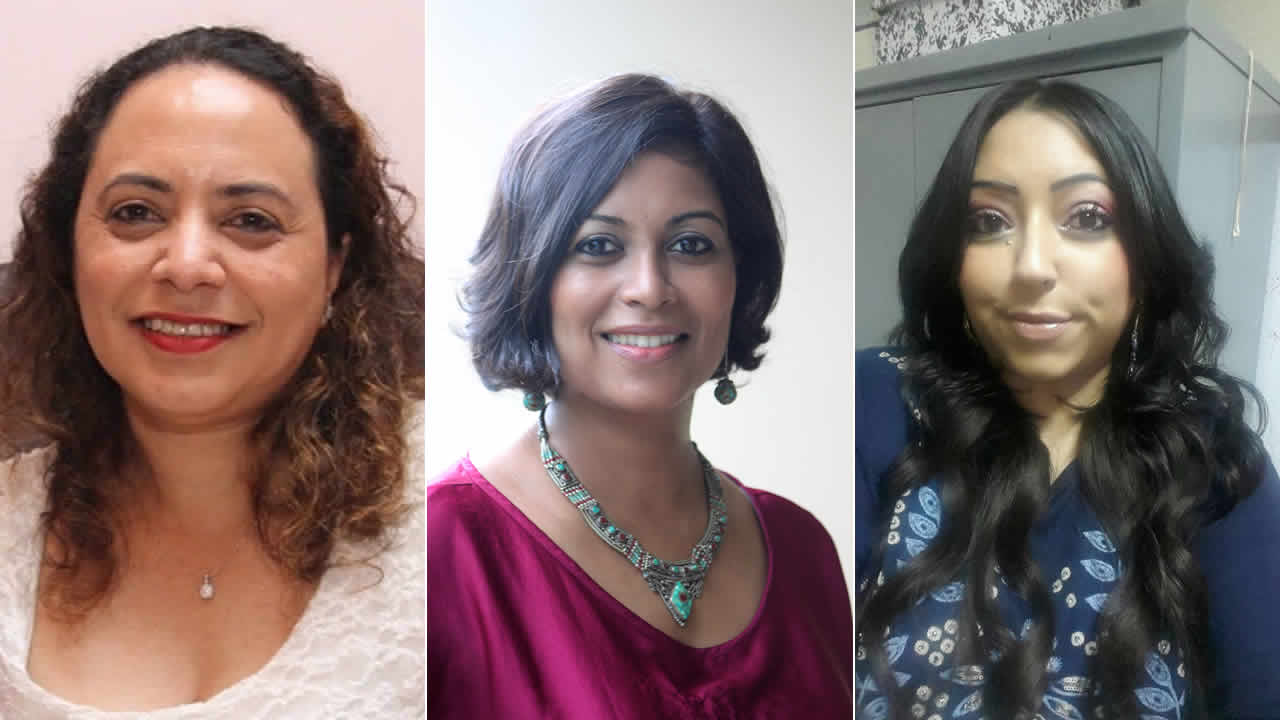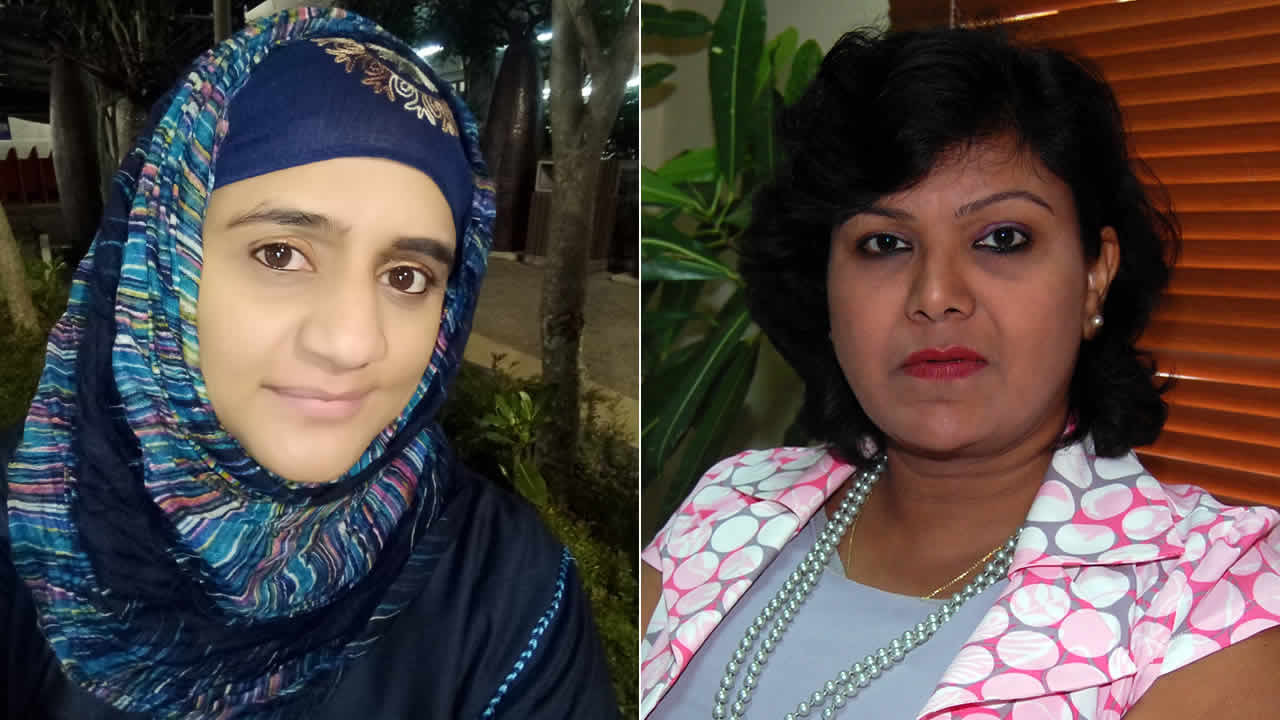
The recent gender statistics demonstrate that the gender gap still prevails. An investigation foregrounded an important facet: Our traditions and mindset restrain women from delving into research due to societal norms and some values that are outdated. In this context, having women refraining from research studies is an impediment for our society and our advocates, a few Ph.D holders, share their views and indicate that we need to create the necessary logistics to encourage women’s research.
One of the revelations is that despite girls performing better at school, college and higher education (undergraduate/graduate studies), the number of women choosing to move up to MPhil and above is lesser than men. Why such a gap? There is no discrepancy in the number of girls and boys entering schools at primary level. As we move up the ladder of education, statistics clearly demonstrate that girls perform better but when they reach the stage of a career path, men easily outnumber women.
According to statistics, both men and women are equally enrolled in courses for a Bachelor’s Degree. There were fewer women than men at PhD, MPhil and DBA levels, 198 women against 233 men. As a result, women continue to be under-represented in research.
No. of students enrolled1 in tertiary institutions by level
| Level | Male | Female | Total |
|---|---|---|---|
| PhD | 116 | 96 | 212 |
| MPhil | 83 | 87 | 170 |
| DBA2 | 34 | 15 | 49 |
| Master’s Degree | 1,607 | 1,778 | 3,385 |
| PG3 Diploma | 47 | 42 | 89 |
| PG3 Certificate | 184 | 526 | 710 |
| Bachelor’s Degree | 8,156 | 10,757 | 18,913 |
| Professional | 2,708 | 3,532 | 6,240 |
| Diploma | 1,229 | 1,659 | 2,888 |
| Certificate | 282 | 331 | 613 |
| Total | 14,446 | 18,823 | 33,269 |
| Source: Statistics Mauritius | |||

What may cause such a gap?
Several Ph.D holders in different fields provide an insight why less women are climbing the academic ladder. Dr Zibya Issack, Dr Roshni Mooneeram, Dr Roubina Juwaheer, Dr Dorine Chukowry and Dr N Taleb-Hossenkhan underline the main reasons why women show less interest in pursuing post graduate studies and research despite possessing all the capabilities to do so.
No career pathway
Dr Zibya Issack, who did her PhD in Francophone Literature, states that one major reason is that there is no career path after a PhD. “I take my own example. I’m a doctoral graduate and I’m still working at secondary level. But I try to be happy with what I have and with what I don’t have. Hence, to avoid frustration, many women try to play safe and get secured with a job with a simple undergraduate degree.”
Dr Roshni Mooneeram, who holds a PhD in Language Policy, avers along the same lines. “There are not enough research centres or enough work opportunities, where such expertise would be an asset in the first place.”
Dr Dorine Chukowry explains that many ladies are just as happy to acquire the basic requirements that are commensurate with an undergraduate degree, because they know that if they want to move forward, it will be very difficult, as they do not have many incentives or opportunities are not really open to them. “Post graduate studies are very expensive. When they know that they will not be able to get back the investment they’ve made, not only in terms of money but also the amount of energy and time invested, among others, they are hesitant to pursue a postgraduate degree.”
Patriarchal society
Dr Roshni Mooneeram highlights that Mauritius also remains a deeply patriarchal society. “Women are sometimes concerned about the effect that their academic qualifications may have on marriage prospects. This is a story that I often come across, as in, girls think they might be seen as too clever or too powerful for them to be marriageable. You have to bear in mind that a lot of women graduates stop working in the first place after they get married and more especially after they have children. Cultural norms and stereotypical beliefs about the place of men and women in society remains the biggest hurdle, so that women will often self-impose limits onto their ambitions, which hinder their own development. We would need to start by recognizing that men and women have equal rights to both work and care.”
Dr Dorine Chukowry underlines that the mindset of our Mauritian people has not changed even today, even as the 21st century is advancing. “It is unfortunate but the reality is still the same. After a young woman has completed her undergraduate studies, her family starts looking for prospective grooms. Marriage is a huge impediment in the careers of women. After marriage, if a woman wants to pursue further studies, it depends on the husband’s approval and understanding. Not all husbands will want to have additional responsibilities. It is even more difficult for women with children.”
Glass ceiling
Dr Roubina Juwaheer, who has mixed opinions on this question, argues that more women are being enrolled in post graduate programmes like MBA and there is growing interest among women to enroll for MPhil at the University of Mauritius but at the same time, we must not forget the glass ceiling issue. For her, family commitments and child care also restrain women from doing post grad studies.
Dr N Taleb-Hossenkhan, on her part, states that some of the reasons for this decline are lack of role models among teachers, gender-bias curricula and textbooks, negative attitudes of teachers, but most importantly, gender stereotyping of girls’ career interests. “However, this is not the case in all areas of research. Some of them actually have a higher percentage enrolment of women than men. Out of the six PhD students I have personally supervised over the last nine years, four of them were actually young women, and another two were young mothers.”
Reversing the trend

Our experts list several recommendations to reverse the trend so as to encourage more women to become PhD holders.
More job opportunities
Dr Zibya Issack avers that more job opportunities should be created but at the same time, both men and women should get the same opportunities. According to her, if women are encouraged to pursue a Ph.D, it will raise awareness and build up confidence in many women’s minds. “As Malala Yousafzai, the Nobel Prize winner rightly said: ‘I raise up my voice—not so I can shout, but so that those without a voice can be heard...we cannot succeed when half of us are held back’. Today, both men and women are working and the financial responsibilities are being shared almost equally, and this is considered as gender equality. Along the same lines, investing in women’s educational empowerment sets a direct path towards gender equality and inclusive economic growth.”
More incentives
Dr Roubina Juwaheer believes that we can encourage women to be in research and to advance towards a Ph.D by providing more facilities like child care on campus, sharing of responsibilities among men and women and online mode of learning, more transport and security at evening hours, flexi time and flexi place, and allocating more empowerment to women. “Research across different disciplines will be enhanced and contribute to a better society as a whole. More themes around women in leadership positions, decision making, women in politics, Artificial Intelligence, and women related diseases (medical field) may be better understood.”
Similarly, Dr N Taleb-Hossenkhan reveals that offering grants and subsidies can encourage women to enter into research. Dr Dorine Chukowry also embraces the same philosophy. She declares that it is time for our mindset to change, if we want more women to pursue PhDs. “Educating a woman means educating a family. We have so many issues in our society and hence making women independent has become a must.”
Mentoring
Dr N Taleb-Hossenkhan underscores that one of the strategies is mentoring young women interested in doing research.
Role models
Introducing girls and women to female role models who have or are still actively involved in various research areas is another strategy, as put forward by Dr N Taleb-Hossenkhan. She confides that we must raise awareness of the achievements of women researchers globally, increasing the awareness of career opportunities for girls and women with postgraduate degrees, collaborate with schools, non-government organizations and corporations in providing programs to encourage women’s and girls’ progression in various research areas as well as promote legislation that supports maternity and paternity leave.
A change in our society
Dr Roshni Mooneeram reveals that we would have to determine what the purpose of postgraduate studies would be in the first place. “In the near future, it is not conventional academic studies that would be prized. The generation Z, after the millennial, is likely to go straight into work bypassing 3 years of higher education and picking up on professional skills through Learning and Development at work. Future work trends indicate that young women and men who are graduating now would have changed 10 jobs by the time they are 40. They will therefore require intense and regular upskilling. Of course, there will always be a handful of people who will choose conventional academia to push the boundaries of knowledge, but at the same time knowledge moves at such an accelerated pace that a thesis often very quickly becomes outdated.”
She further adds that knowledge is empowerment for both men and women. “In Mauritius, we have the highest educated female population in Africa; there are more women in higher education than there are men. However, this intellectual capital does not translate into economic participation and to access to decision-making roles. Rather than more women with Ph.Ds, I would rather see more women on Boards, more women CEOs, more women in Parliament, women returning to work after childbirth.”
Fewer women in Science
It has been seen that women are under-represented in science related fields such as Engineering (2% against 11%) and Information Technology (5% against 16%) whereas men were under-represented in Education (4% against 9%) and Languages (1% against 5%). Why is it that women are most likely to be in language fields rather than science? Dr N Taleb-Hossenkhan utters that in general, science careers are perceived as being extremely demanding, competitive, and mostly a male-dominated arena. “This may discourage many young women who are more family-oriented to get into science careers. Other reasons include a lack of role models among female scientists and gender stereotyping of what girls’ careers should be.”







